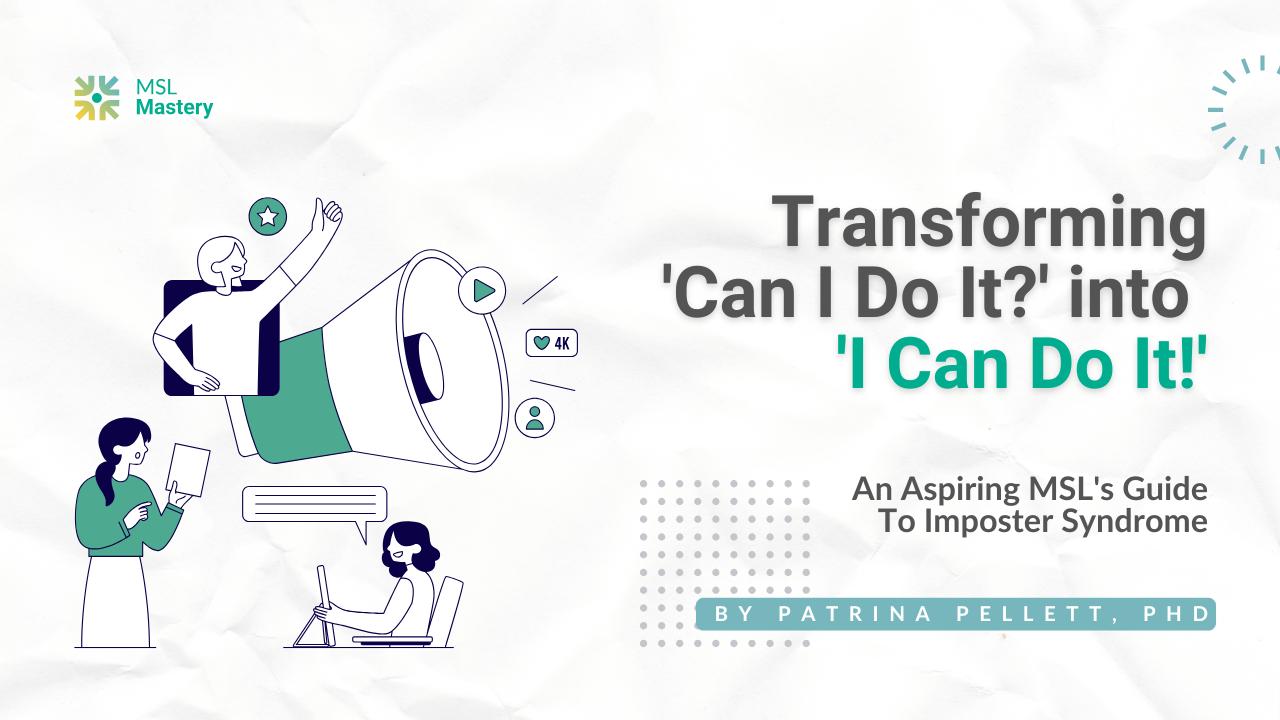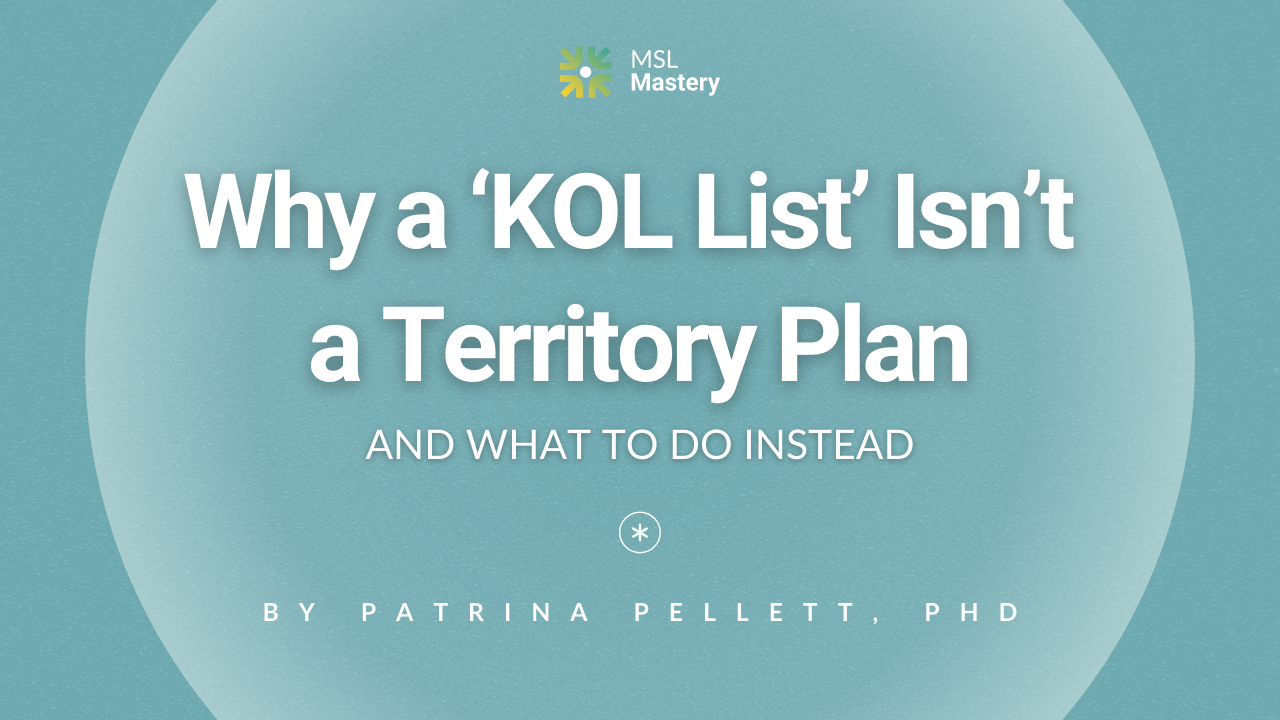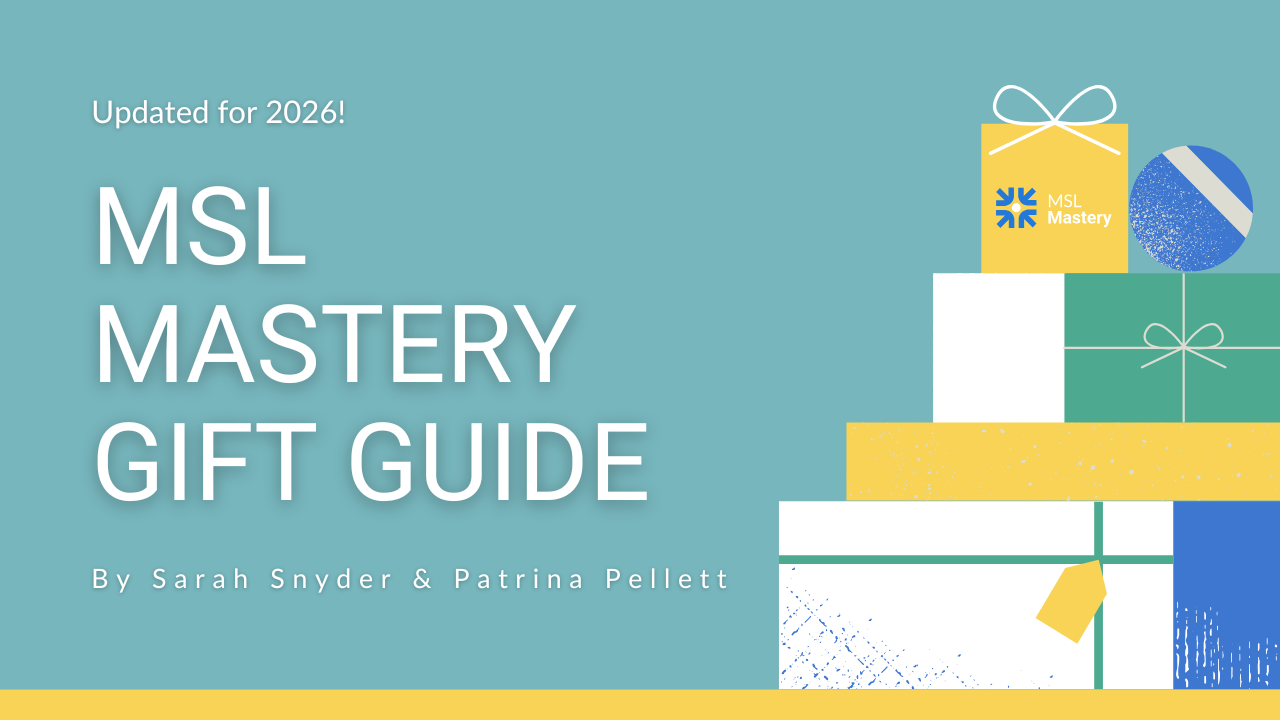
Why MSLs Should Not Fear AI: 5 Reasons to Embrace the Future
May 29, 2025By Sarah Snyder
Artificial Intelligence (AI) is changing the pharmaceutical and healthcare industries—but for many Medical Science Liaisons (MSLs), this change brings uncertainty and concern.
- Will AI replace my role?
- Will technology reduce the need for human interaction with KOLs?
- Will my expertise still be valued if AI can analyze data faster than I can?
These are valid questions.
But the truth is, AI is not a threat to MSLs—it’s a tool that can make us better, more strategic, and more impactful.
Instead of fearing AI, we should be learning how to work alongside it.
Here are five reasons why AI is not a replacement for MSLs, but a powerful asset.

1. AI Can Process Data—But It Can’t Build Trust with KOLs
What makes me irreplaceable in my KOL relationships?
But what it cannot do is build the trust and credibility that MSLs establish with Key Opinion Leaders (KOLs) over time.
- KOL engagement is built on personal relationships, trust, and nuanced communication—things AI cannot replicate.
- HCPs still value human interaction, scientific discussions, and collaboration with MSLs who understand their needs and challenges.
- Strategic conversations require emotional intelligence, adaptability, and real-world experience—AI can support these discussions, but it cannot lead them.
🔹 Deep reflection: What are the unique qualities I bring to my KOL relationships that AI never could?
2. AI Can Provide Insights—But It Still Needs Human Interpretation
How can I use AI to enhance my ability to analyze and communicate scientific data?
AI can scan thousands of publications, summarize clinical trial results, and generate reports in minutes instead of hours. But raw data isn’t enough—it takes an experienced MSL to interpret those reports and communicate their relevance to HCPs.
- AI may generate reports, but it doesn’t understand clinical context, patient impact, or how data applies in real-world settings.
- MSLs act as the bridge between complex data and practical application—our expertise ensures that AI-generated insights are accurate, relevant, and valuable.
- The best MSLs will leverage AI as a tool to be even more efficient and data-driven, rather than viewing it as a competitor.
🔹 Deep reflection: How can I use AI-driven insights to be an even more valuable resource to my KOLs?
💡 Want help turning AI-generated data into compelling scientific discussions?
Our free 3-Step AI Prompt Pack helps MSLs extract insights, tailor content, and prep for impactful KOL conversations using generative AI.
👉 Download the AI Prompt Pack
3. AI Automates Routine Tasks—Freeing MSLs for Higher-Value Work
How much more impactful could I be if AI handled my time-consuming administrative work?
One of the biggest advantages of AI is its ability to automate repetitive, low-value tasks—freeing MSLs to focus on what truly matters: scientific engagement and strategy.
- Imagine less time spent on literature searches, report writing, or data entry, and more time spent engaging with KOLs, participating in strategic discussions, and deepening your scientific expertise.
- AI-powered CRM tools can automate KOL tracking and engagement history, ensuring more strategic, data-driven interactions.
- MSLs who embrace AI will have more time to focus on thought leadership, scientific insights, and impactful conversations.
🔹 Deep reflection: What parts of my job could AI help streamline so I can focus on higher-level impact?
4. AI Can Predict Trends—But It Can’t Make Strategic Decisions
How can I use AI-driven insights to make smarter, more informed decisions?
AI-powered analytics can help predict emerging trends in disease areas, treatment adoption, and KOL engagement patterns. But predictive insights alone don’t create strategy—MSLs do.
- AI can identify patterns in data, but it takes an MSL to understand why those patterns matter and how to act on them.
- AI doesn’t have business acumen, therapeutic expertise, or strategic thinking—MSLs use those insights to guide Medical Affairs teams in decision-making.
- The future MSL will be a strategic advisor, using AI-driven insights to enhance, not replace, their expertise.
🔹 Deep reflection: How can I integrate AI-powered analytics into my decision-making to provide even greater strategic value?
5. AI Will Change the MSL Role—But It Won’t Eliminate It
How can I evolve with AI to ensure I stay relevant and valuable?
AI is not a threat but it is a catalyst for change. The role of an MSL is evolving, and those who adapt and embrace AI will be the ones who thrive.
- The MSL of the future will be more data-driven, strategic, and proactive, leveraging AI for insights while focusing on higher-value engagement with KOLs.
- Just as technology has changed other industries without eliminating human expertise, AI will enhance — not replace —the MSL function.
- Those who actively learn how to integrate AI into their work will position themselves as leaders in the field, rather than being left behind.
🔹 Deep reflection: What skills or knowledge do I need to develop now to ensure I stay ahead in an AI-enhanced MSL role?
🚀 Want to start integrating AI into your workflow today?
Our AI Prompt Pack gives you actionable prompts to make data matter—faster, clearer, and with strategic impact.
Final Thought: AI is a Tool—Not a Threat
The rise of AI in Medical Affairs is not about replacing MSLs—it’s about elevating them. The MSLs who will thrive in the future are those who:
✅ Use AI to enhance their efficiency rather than fear it.
✅ Leverage AI-driven insights to make smarter, more strategic decisions.
✅ Recognize that AI is just a tool, but relationships, trust, and scientific expertise will always be human strengths.
MSLs aren’t going anywhere. Those who embrace AI will be more valuable than ever before.
🚀 Ready to Become an AI-Enabled MSL?
Start now:
→ Download the Free AI Prompt Pack to practice using AI to create better scientific conversations.
→ Or build next-level skills with Presentation Mastery—learn to deliver data in a way AI never can: confidently, strategically, and with real impact.
💬 What’s your perspective on AI in Medical Affairs? Are you excited about it, or do you still have concerns? Let’s discuss.
We Spill the Medical Affairs Tea Every Friday
Real talk, career tips, and insider gems we usually save for training clients.
It’s like brunch with your smartest friend, but in your inbox.
📬 Fridays at 9am CT.
👉 Join the party below!






